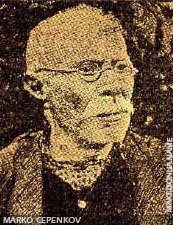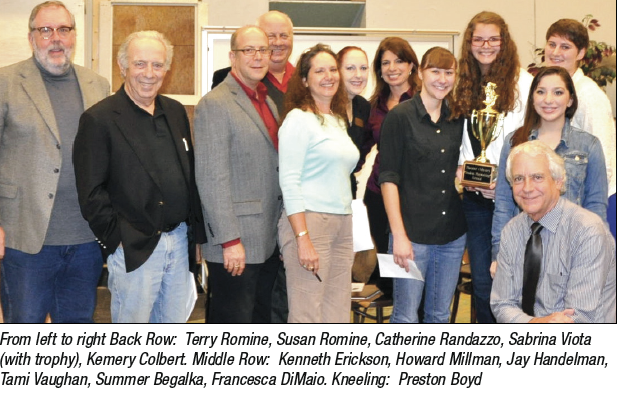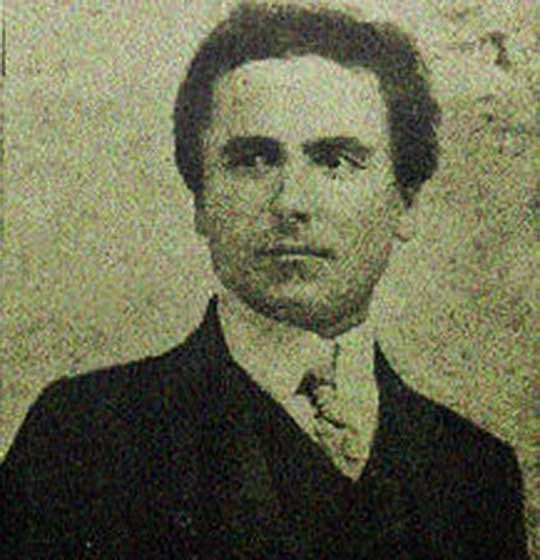MODERN THEATRE
Historians and theoreticians of the Macedonia theatre completely agree about the fact that the date of birth of the Macedonian modern dramatics should be the first performance of the play entitled "Tree Branch in the Wind": the first truly relevant play of the late classic Kole Casule. This historical play, after which many things in the Macedonian theatre life started radically changing, was not staged in Skopje: after many turbulences and misunderstandings, on 27 April 1957 it was at last staged by the actors of a small ("provincial") theatre, the one in Prilep, led by a director, the name of which incites serious respect- Mirko Stefanovski. Starting with the famous "Plato Krechet", the play in which he had a supporting role, until his death in 1981, the stature of Mirko Stefanovski (in any and in any type of theatre ambience!) undoubtedly results in "the event". A theatre manager with extraordinary managerial qualities, a director with a precise sense for theatricality of the drama text, a critic with sharp eye and precise analytical skills, Stefanovski is one of the rare, and strong personalities who non-imposingly, but certainly determined the theatre life. In the course of the 60's of this century the Macedonian dramaturgy maintained even (in the context of authors) strengthened its general orientation (openness ) towards current world drama and theatre trends: existentialism, post-expressionism, anti-theatre, absurd...
 In the course of the next decade, simultaneously with the affirmation (even imposition) of the so called Macedonian theatre of directors and its dominant factors: Ljubisa Georgievski, Vladimir Milcin and Slobodan Unkovski., the Macedonian drama was gradually "redirected" towards the post-modern European trends: fragmenting, on one hand its art features-recycling, on the other, the indigenous Balkan, mythical, folklore, historic, genre and other models. Reading Marko Cepenkov from his point of view, respecting the structure of the sensitivity of his own generation, the playwright Goran Stefanovski and the director Slobodan Unkovski with the ensemble of the Drama Theatre in Skopje created the emblematic play "Jane Zadorgaz" (1974). The same tandem, in the course of the following ten years, has focused its creative interests on projects that continuously examine/research the possibilities of the theatre as a communication model, in the domestic, Macedonian conditions! The director Ljubisa Georgievski made the same examinations through the texts of "his two authors", first with Kole Casule ("Tree Branch", 1966, "Score for a Miron" 1967, "Court" 1978) and after that Jordan Plevnes (Erigon, 1981). The third member of the Macedonia director's triplet, Vladimir Milcin, has a wider, more powerful affinity towards the recent Macedonian theatre occurrences, what is expressed through his staging of texts of several young ("new") dramatists.
In the course of the next decade, simultaneously with the affirmation (even imposition) of the so called Macedonian theatre of directors and its dominant factors: Ljubisa Georgievski, Vladimir Milcin and Slobodan Unkovski., the Macedonian drama was gradually "redirected" towards the post-modern European trends: fragmenting, on one hand its art features-recycling, on the other, the indigenous Balkan, mythical, folklore, historic, genre and other models. Reading Marko Cepenkov from his point of view, respecting the structure of the sensitivity of his own generation, the playwright Goran Stefanovski and the director Slobodan Unkovski with the ensemble of the Drama Theatre in Skopje created the emblematic play "Jane Zadorgaz" (1974). The same tandem, in the course of the following ten years, has focused its creative interests on projects that continuously examine/research the possibilities of the theatre as a communication model, in the domestic, Macedonian conditions! The director Ljubisa Georgievski made the same examinations through the texts of "his two authors", first with Kole Casule ("Tree Branch", 1966, "Score for a Miron" 1967, "Court" 1978) and after that Jordan Plevnes (Erigon, 1981). The third member of the Macedonia director's triplet, Vladimir Milcin, has a wider, more powerful affinity towards the recent Macedonian theatre occurrences, what is expressed through his staging of texts of several young ("new") dramatists.
At the end, in the last few years there has been a decisive affirmation of a type of a new sensitivity, what is demonstrated by dramatists from the youngest generation, mainly graduates from the Dramaturgy Department at the Faculty for Drama: Zanina Mircevska, Sasko Nasev, Dejan Dukovski. It is exactly from their work, that one could see and read the reply to the question: where will the Macedonian dramaturgy go after its post-modern experiment? The issue that is seriously imposing itself is undoubtedly the further development of the overall Macedonia theatre phenomenon, in its all vital segments: dramatics, dramaturgy, direction, acting, production (as a system), reception, aesthetics... Undoubtedly, numerous direct contacts with most current European and world theatre events have had great influence on the Macedonian theatre phenomenon: the most relevant Macedonian festivals - primarily the Ohrid Summer Festival - are not just venues for often visits by foreign theatre ensembles and performances, but also venues for (sometimes) radical researches of new expression/aesthetic possibilities:

 In all segments not only in the theatre sense, the Ohrid Summer Festival has permanently proven itself as an event of extraordinary importance for the national culture, as a place for its direct contacts with the world, but also a place for examination of its own achievements. If we consider the Macedonian theatre festivals, the Voydan Pop Georgiev - Černodrinski (on the picture) Theatre Festival in Prilep (33 years continuity) being the oldest one, the May Opera Evenings in Skopje, (inaugurated in 1972) as established and/or institutional, we should definitely mention one of the festivals that carefully develops its stressed alternativeness, alternativeness as its trade mark: it is a matter of the international theatre festival Young Open Theatre (YOP), which has a more than two decades continuity. The end of the on going millennium and the early begging of the new one , the one that shall impose (as every day and common!) whole series of new/different media technologies, thus completely new/different presentation-reception relations, new and different aesthetic values in all spheres of creativity-is welcomed by the Macedonian theatre, but the theatre is confused, unprepared, organizationally and managerialy old fashioned, almost scared for its (institutional) future.
In all segments not only in the theatre sense, the Ohrid Summer Festival has permanently proven itself as an event of extraordinary importance for the national culture, as a place for its direct contacts with the world, but also a place for examination of its own achievements. If we consider the Macedonian theatre festivals, the Voydan Pop Georgiev - Černodrinski (on the picture) Theatre Festival in Prilep (33 years continuity) being the oldest one, the May Opera Evenings in Skopje, (inaugurated in 1972) as established and/or institutional, we should definitely mention one of the festivals that carefully develops its stressed alternativeness, alternativeness as its trade mark: it is a matter of the international theatre festival Young Open Theatre (YOP), which has a more than two decades continuity. The end of the on going millennium and the early begging of the new one , the one that shall impose (as every day and common!) whole series of new/different media technologies, thus completely new/different presentation-reception relations, new and different aesthetic values in all spheres of creativity-is welcomed by the Macedonian theatre, but the theatre is confused, unprepared, organizationally and managerialy old fashioned, almost scared for its (institutional) future.
At the same time, the Macedonian theatre becomes even more aware that at no time in its long history it has never been so creative, powerful, professionally qualified and equipped as it is now. It is also aware that even in the next millennium it can be even more creative, more powerful, more professionally qualified, more equipped... The complex theatre system has always functioned as a type of a fraction, the value of which was always determined by the relations between its two members: organisation and aesthetics. The aesthetic advantage that the current Macedonian theatre demonstrates at this moment will most probably be (soon) defined into a new Macedonian organisational theatre identity.